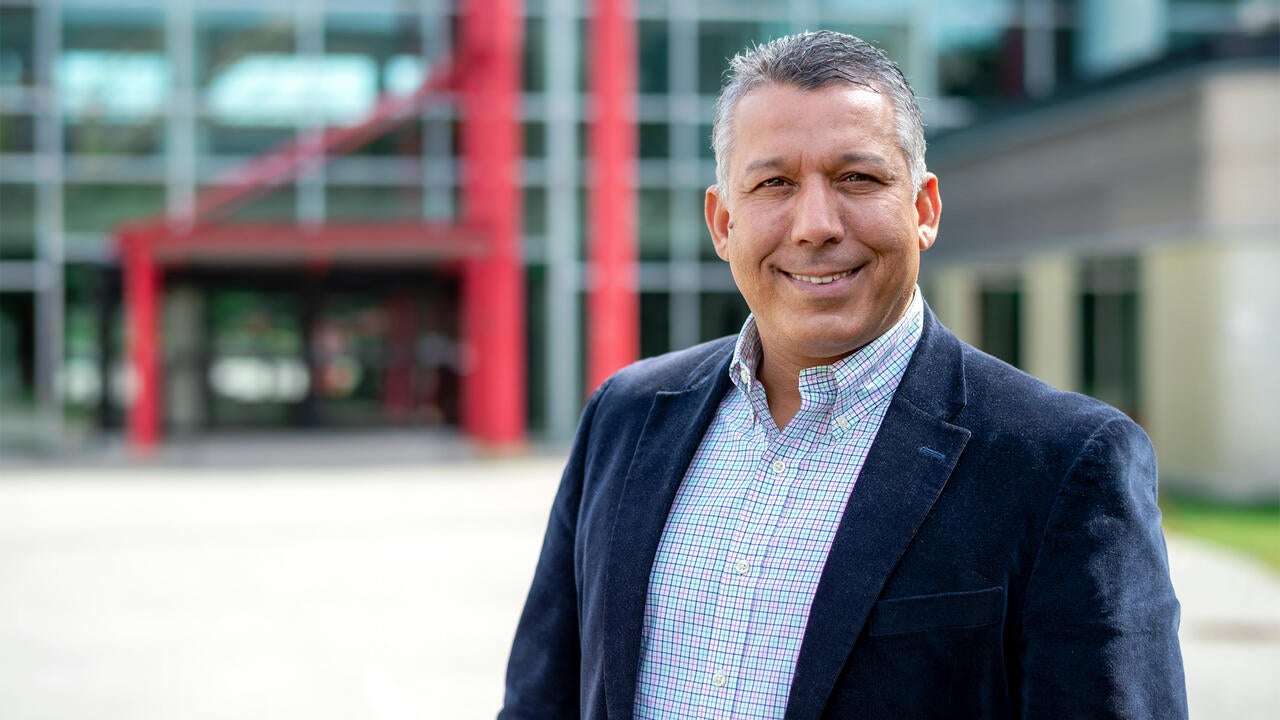
New Rogers Research Chair in Network Automation
University of Waterloo establishes prestigious industry-sponsored research chair in network automation to be held by Raouf Boutaba

University of Waterloo establishes prestigious industry-sponsored research chair in network automation to be held by Raouf Boutaba
By Jordan Flemming University RelationsDr. Raouf Boutaba, a university professor and director of the Cheriton School of Computer Science, has been appointed the inaugural Rogers Chair in Network Automation.
Boutaba is an internationally recognized expert in the management of resources, systems and services in both wired and wireless networks. His current research applications encompass a range of novel technologies, including network virtualization, software-defined networking, cloud and edge computing, 5G and beyond mobile communications networks and cybersecurity.
“The partnership with Rogers provides me and my students with access to field data and the infrastructure to pursue cutting-edge research. It will enable us to achieve the kind of impact I value the most that is to see our solutions deployed in the real world and being used widely,” Boutaba explains. “We have specific plans as part of this Rogers Research Chair for knowledge mobilization and technology transfer through executive workshops we will offer to Rogers' engineers, network architects and managers.”

Raouf Boutaba gives a tour of his lab to a delegation from Rogers
This appointment is part of a broader collaboration agreement between the University and Rogers, which began in 2019 and was renewed in 2023. The newly created research chair will support cutting-edge research and development in network automation and provide hands-on training programs for Rogers’ personnel. The funding will also seek to leverage additional matching financial support from government agencies to bolster research and innovation efforts.
This partnership with Rogers displays Waterloo’s commitment to fostering industry-academic collaborations that drive innovation and address critical technological challenges. The establishment of the Rogers Research Chair in Network Automation marks a significant milestone in the University's efforts to lead in the field of communications network automation and enhance the practical skills of current and future industry professionals.
“The University gratefully acknowledges the creation of the Rogers Research Chair in Network Automation – the latest chapter in our longstanding and immensely productive partnership with Rogers,” says Dr. Charmain Dean, vice-president, Research and International. “Congratulations to the chair holder, professor Raouf Boutaba, who will use this sponsorship to advance research in communications network automation and provide hands on training for Rogers’ personnel. Thank you to our partners at Rogers for your continued investment in cutting-edge research.”

Raouf Boutaba gives a tour of his lab to a delegation from Rogers
Rogers is investing in 5G research to pave the way for future innovations and economic development. 5G technology is transforming telecommunications — offering speeds up to 20 gigabits per second and low latency of just one millisecond. This enables lightning-fast downloads and real-time applications for things like remote surgery and virtual reality. 5G can connect up to one million devices per square kilometer, boosting Internet of Things (IoT) technology, where devices with sensors and network connectivity can autonomously perform tasks. This technology promises advancements in smart cities, homes and industrial automation.
Rogers has already invested millions of dollars to transform UW campus into a 5G smart campus, featuring multiple indoor and outdoor cell sites offering 5G services in low bands, mid bands and the mmWave 28GHz band.
“I feel honoured and grateful to Rogers for entrusting me with this position. It will play a pivotal role in furthering my research program and the training of students in the critical area of network automation,” Boutaba says.

Read more
Vivek Goel welcomes Ron McKenzie from Rogers Communications to discuss the impact of the 5G-UWaterloo partnership to advance Canadian tech innovation

Read more
Waterloo and Rogers partnership helps transform infrastructure inspections

Read more
Waterloo and Rogers partnership could redefine real-time hockey analytics
The University of Waterloo acknowledges that much of our work takes place on the traditional territory of the Neutral, Anishinaabeg, and Haudenosaunee peoples. Our main campus is situated on the Haldimand Tract, the land granted to the Six Nations that includes six miles on each side of the Grand River. Our active work toward reconciliation takes place across our campuses through research, learning, teaching, and community building, and is co-ordinated within the Office of Indigenous Relations.